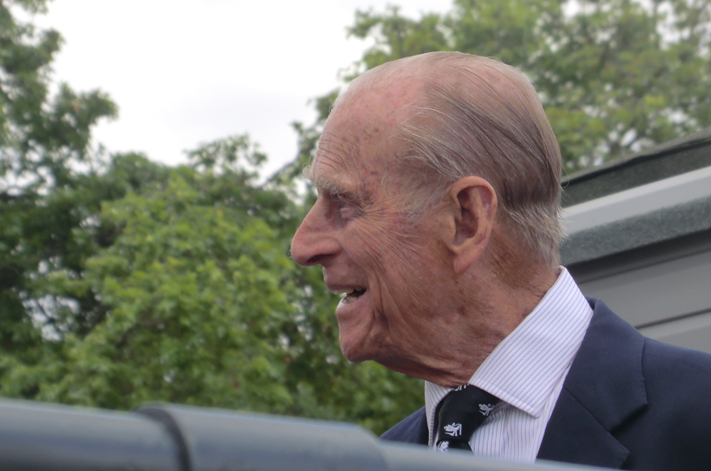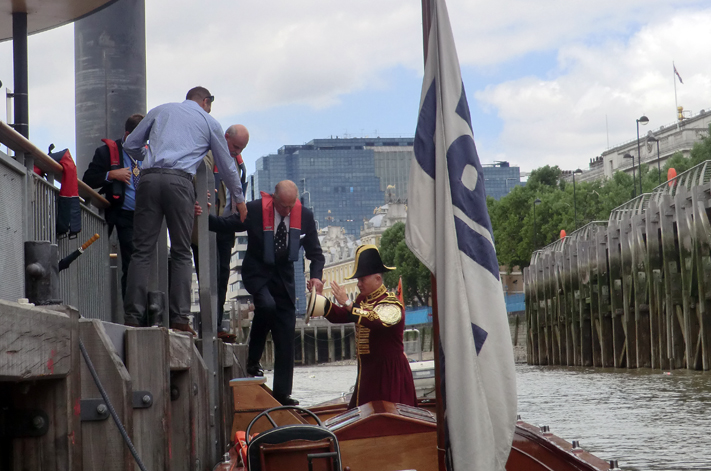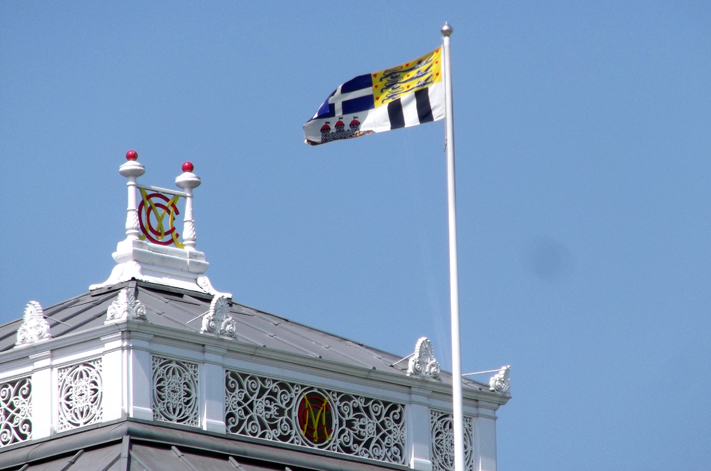By Philip Barker
Prince Philip, Duke of Edinburgh who died aged 99 last Friday was an active figure in international sport for much of his life. He served as the President of the International Equestrian Federation for 32 years, opened an Olympic Games, addressed an Olympic Congress and even acted as starter for an Olympic event.
Best known in the international sporting world as FEI President, he took on the role in 1964 and served for 22 years.
He was still an active sportsman. He had taken up polo as a young man before the second world war and continued to play until 1971. He was also instrumental in establishing the Guards Club at Windsor Home Park, which later staged a match commemorating the Olympic polo competition of 1908.
After Polo, the Prince took up four-in-hand driving. He competed in six world championships and won team gold in 1980.
In a book edited by IOC President Lord Killanin and ISOH member John Rodda, he said “it could well be looked upon as the equivalent of the chariot races of the ancient Games.”
He often offered controversial ideas. At the I973 Olympic Congress in Varna, he referred to “suggestions” he had made the previous year.
“When I tried them out here on a member of the IOC he nearly had an apoplectic fit, so I thought I would spare him and other members of the IOC who feel the same way.”
He did “strongly urge the IOC to consider every possible alternative to the problem of size.”
His most significant Olympic intervention came in 1980.
American President Jimmy Carter had called for a boycott of the Moscow Olympics in at the Soviet invasion of Afghanistan and was strongly supported by British Premier Margaret Thatcher.
Against this backdrop, Prince Philip travelled to a crisis meeting in Lausanne.
After the meetings, Thomi Keller, the Swiss head of International Rowing, read the official statement.
“The International Olympic federations declare their belief that the boycotting of a sporting event is an improper way of trying to obtain a political end and that the real victims of any such action are the sportsmen and women.”
The highly respected British writer Ian Wooldridge wrote in the Daily Mail that Keller: “Said deliberately and clearly ‘with Prince Philip’s authority’. A lot of people collaborated in that statement. Prince Philip put the finishing touches.”
There were official denials and some accused Keller of “wordplay.”
Killanin insisted in his memoirs that the Prince had supported the statement.
“We lunched at the same table. It is clear that in his conversation with other people at the table, some of them formed the impression, he was opposed to the Thatcher support of the boycott.”
Prince Philip was asked whether he would be able to go to Moscow, as his role of FEI President required him to do.
“I see no way I can go.” he said.
Those who did included current World Athletics President Lord Coe, who won 1500m Olympic gold.
“British sport has lost one of its strongest and, on occasion, boldest advocates. He had an unflinching view of the role of sport in all our neighbourhoods,” said Coe in a social media tribute.
The Prince had attended the 1948 Olympics in London where he fired the starting pistol for the cycling road race in Windsor.
In 1956, as representative of The Queen, he travelled to Melbourne to open the Games.
Organising Committee Chairman Wilfrid Kent Hughes told him: “You have travelled halfway around the world to honour the Olympics in the city of Melbourne. We would ask you to convey to our patron of the Games, her gracious Majesty the Queen, the warmest of all greetings from every man, woman and child present at this feast of sport and festival of international goodwill.”
The Prince, in full naval uniform then opened the Games.
Later, he watched some sport. At the gymnastics hall, the Gold medal winning Hungarian squad, including the remarkable Agnes Keleti had just finished their performance when he arrived.
They repeated their routine for the Prince.
By this time, he had also become president of the Commonwealth Games Federation (CGF).
Current CGF President Louise Martin paid tribute to a man who “will be forever remembered for a lifetime of dedicated service to the Commonwealth.”
At the 1954 Games in Vancouver, he witnessed the epic mile race in which Roger Bannister of England beat Australia’s John Landy.
“I attended these Games as a spectator, one of the many thousands who watched the efforts of organisers and athletes with appreciation and delight.”
He became CGF President, the following year and held the role for over thirty years.
In 1958 at the Cardiff Games, The Prince read a message from the Queen to the athletes. This had been carried by baton relay, a tradition which endures to this day.
It was the beginning of a long and happy association with the “Friendly Games” though it was not until 1970 in Edinburgh that the Queen joined him.
He would usually read the message from the baton at the opening ceremony and the Queen would arrive later to close the Games, a sequence reversed only once in 1978.
In 1967, his opening ceremony duties even extended to the Pan-American Games in Winnipeg.
Despite heavy rain, the Prince scorned an umbrella.
Veteran Canadian sports writer Jim Coleman wrote
“Prince Philip came 8000 miles to stand in a rainstorm. He stood there soaking wet and pretended he didn’t even know it was raining.”
His own sporting philosophy had been forged in his schooldays. Born in Corfu, he left Greece as an infant and was a pupil at Salem school in Germany and then Gordonstoun in Scotland, both established by German educationalist Kurt Hahn.
The school’s emphasis on personal reliance and physical wellbeing later inspired the Prince to establish the “Duke of Edinburgh’s Award Scheme.”
It is designed to help young people “build the skills, confidence and resilience they need to make the most out of life.”
There were considerable echoes of Baron Pierre de Coubertin’s philosophy. Prince Philip himself became a patron of a modern pentathlon, a sport devised by the Baron himself.
He was a keen cricketer and the only man in modern times to serve twice as president of the Marylebone Cricket Club.
He had also learnt to sail while at school. The Island Sailing Club on the Isle of Wight made a wedding gift of a Dragon class yacht called “Bluebottle” and the couple were both installed as honorary members of the Royal Yachting Association (RYA). The Prince later became RYA President and meetings of the organisation were often held on board the Royal Yacht Britannia during Cowes Week.
He sailed with Uffa Fox, a distinguished boat builder and sailor on the island in the 1950s and 1960s.
He was also President of the Royal Caledonian Curling Club.
The Prince was an interested spectator at the London 2012 Olympics and was with the Queen when the Torch Relay visited Windsor Castle.
This week, the British Olympic Association were among many sporting bodies to offer tributes at his passing.







There are no comments published yet.